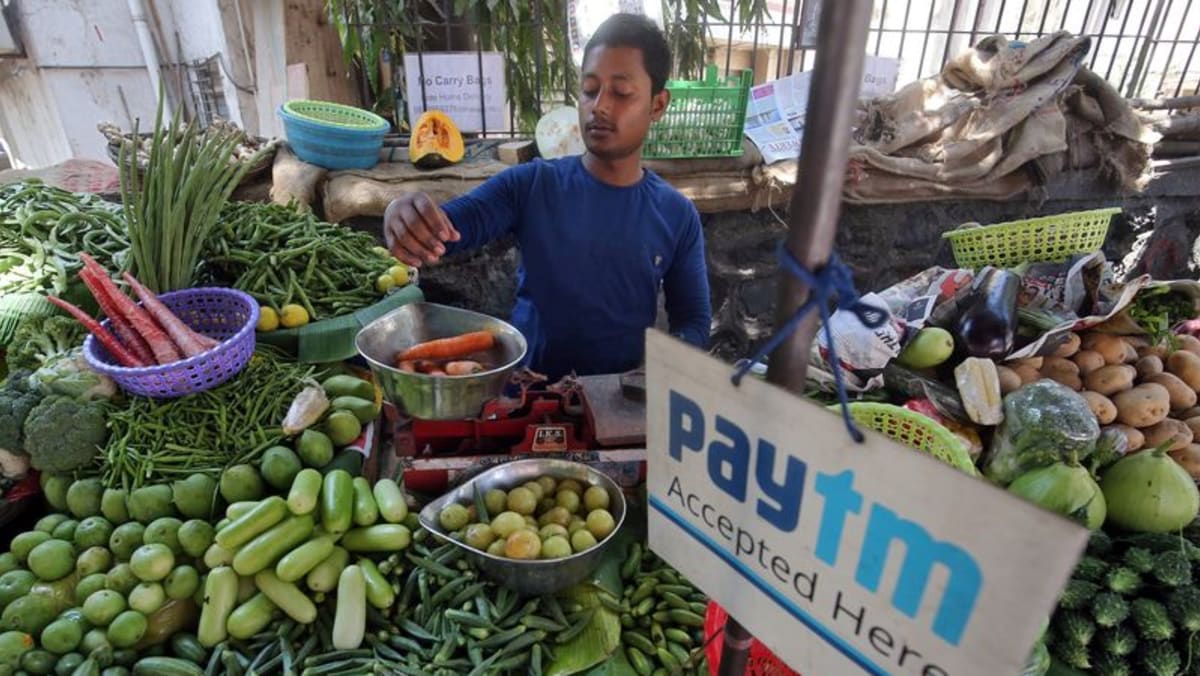BENGALURU/MUMBAI :Indian digital payments firm Paytm lost a fifth of its market value on Thursday after the central bank ordered its payment bank subsidiary to halt its business, sparking fears for the company’s profitability and reputation.
Paytm’s stock fell to a six-week low of 609 rupees, erasing around $1.2 billion in value from the company also known as One 97 Communications. The stock was down 20 per cent, at the bottom of its exchange-imposed daily trading band.
The Reserve Bank of India (RBI) on Wednesday ordered Paytm Payments Bank to stop accepting fresh deposits in its accounts or popular digital wallets from March, raising worries over revenues from the company’s main payments business.
India’s payment banks accept deposits but cannot lend. They park their deposits in government securities and in deposits of other banks.
The RBI’s order could be a precursor to cancelling the bank’s license, a person familiar with the matter told Reuters.
The action against Paytm Payments Bank followed years of non-compliance with the central bank’s rules including those that govern customer due diligence, use of funds and technology infrastructure, the source said.
Paytm and the RBI did not immediately respond to requests for comment.
The regulatory action also raises concern that Paytm’s lending partners might reconsider their relationships with the company, which owns 49 per cent of the payments bank, analysts said. It could stall efforts by Paytm, which rose to fame after India banned high-denomination notes in 2016, to attain profitability on a net basis.
“Private banks that were once gung ho on Paytm will now be cautious to take on new partnerships post the RBI flack,” said a banker with a midsize private bank.
A banker at a state-run bank said banks will demand a complete resolution of the RBI’s concerns before taking on any new partnerships with Paytm.
The bankers asked not to be named as they were not authorised to speak with the media.
Paytm said it would take steps immediately to comply with the RBI’s directions, and that it expects a worst-case impact of 3 billion to 5 billion rupees ($36 million-$60 million) to its annual earnings before interest, tax, depreciation and amortisation (EBITDA).
In 2022 the RBI ordered the bank to stop adding customers. A subsequent audit revealed “persistent non-compliances and continued material supervisory concerns in the bank”, the central bank said on Wednesday, without disclosing details.
Paytm’s stock is trading at less than one-third of its 2021 listing price of 1,950 rupees, despite having climbed 20 per cent last year. With Thursday’s plunge, the shares are down more than 4 per cent this year.
PAYTM MUST ‘RESTORE CREDIBILITY’
Jefferies downgraded Paytm’s stock to “underperform” from “buy” after the RBI move, slashing its target price to 500 rupees from 1,050 rupees and saying regulatory and reputational issues could affect profitability.
The brokerage cut its EBITDA estimates, excluding the employee stock ownership plan, for Paytm by 46 per cent in the 2025 financial year and 44 per cent for 2026, while forecasting declines in payments revenues, lending revenues and compression in payments margins.
“Paytm’s business impact will largely come from reputational concerns arising from governance/compliance and hence, the path to resolution will be from stronger compliance with regulations and revoking of RBI measures,” Jefferies said.
JPMorgan cut Paytm’s rating to “underweight” from “neutral” and slashed target price to 600 rupees from 900 rupees.
“While we don’t believe that the order is an end of the road for Paytm, it materially impacts near term growth, profitability, forces another pivot and necessitates it to restore credibility of durability of the business,” JPMorgan analysts wrote in a note.
Paytm is one of India’s largest payment firms and counts SoftBank and Ant Financial among its early investors. Over the past year, SoftBank has reduced its Paytm stake, while Warren Buffett’s Berkshire Hathaway and China’s Alibaba Group have exited the company.
#Indias #Paytm #shares #sink #RBI #curbs #payments #bank #business













